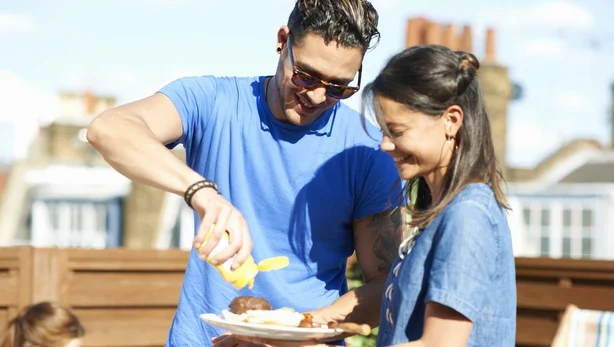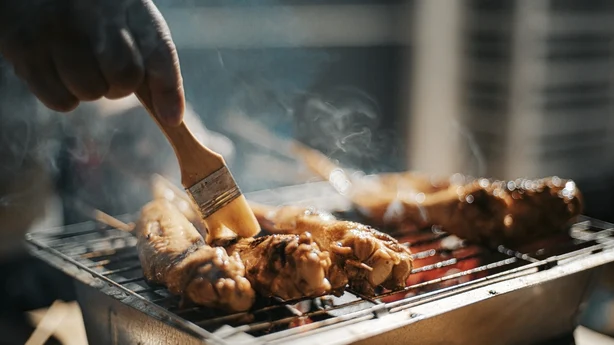Research from safefood has found some worrying mistakes home cooks may be making when hosting summer BBQs.
More than four in 10 home cooks (43%) surveyed say they have burned BBQ meats on the outside but which was still raw in the centre, while a further 39% reported undercooking their food.
Half of respondents said the hardest part of cooking on a barbeque was not burning the food, while more than four in 10 (45%) said knowing when the meat was thoroughly cooked was the hardest part.
The most popular foods for cooking on a barbeque were burgers (66%), chicken (55%) and sausages (55%), all of which need to be cooked until piping hot, with no pink meat, and the juices running clear to be safely cooked.

To ensure your family BBQ doesn't end in disaster, simply place a meat thermometer in the thickest part of the meat.
Not only will it let you know when your dinner is to perfection, it will add an extra layer of safety and confidence to help grill masters get it right.
Supporting the campaign, Guy Sinnott, home cook and creator of the Quarantine Cook-A-Long said:
"There are a few basic indicators to ensure that meat is cooked through; cut into it with a clean knife, check that it is piping hot all the way through, avoid pink meat and ensure juices run clear. My main piece of advice is to take the guesswork out of it and use a meat thermometer as it really does add that extra layer of reassurance."
"It couldn’t be any easier, just pop the meat with the thermometer at the thickest part and when it reaches 75 degrees Celsius you know you’re good to go!"

safefood's 7 top tips for a safe barbeque
1. Keep perishable foods like salads, coleslaw and quiche in your fridge until you are ready to serve them.
2. Burgers, sausages and kebabs, pork and poultry must be cooked all the way through – take your food off the heat, pop the thermometer in the thickest part of the meat and when it reaches 75 degrees Celsius, then it’s cooked and ready to eat. Steaks can be served 'rare' as harmful bacteria are on the outside only (and not in the centre).
3. If you like to marinate your meat, make sure any marinade used on raw meat is not then used as a sauce to coat vegetables or cooked meat as it will contain raw meat bacteria.
4. If you choose to barbeque any frozen food, it must be firstly completely thawed on the bottom shelf of your fridge before you cook it.
5. When handling raw meat and poultry, wash your hands thoroughly and frequently, most importantly before going on to prepare salads and other ready to eat foods.
6. Once your meat is cooked thoroughly, make sure to keep cooked meat separate from raw meat and to use separate chopping boards, cooking utensils and plates. Harmful bacteria in raw meat, poultry and their juices can cross contaminate cooked food and lead to food poisoning, something your family won’t thank you for.
7. If there are leftovers from your barbeque, allow the food to cool before refrigerating, however make sure to refrigerate food within two hours of cooking. Always remember with leftovers - if in doubt, throw it out.
Disclaimer: The copyright of this article belongs to the original author. Reposting this article is solely for the purpose of information dissemination and does not constitute any investment advice. If there is any infringement, please contact us immediately. We will make corrections or deletions as necessary. Thank you.






